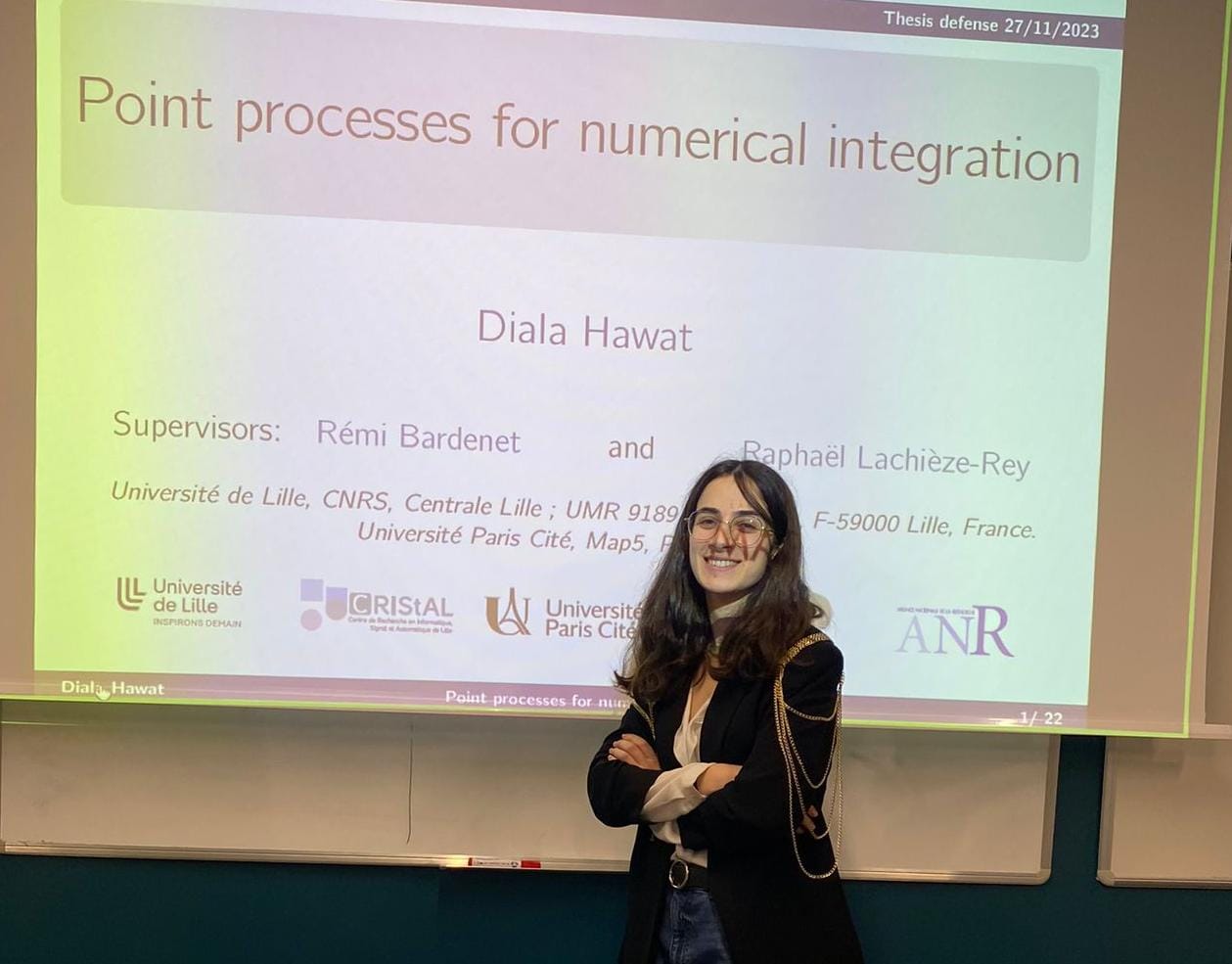
May 29th 2024
Repelled point processes with application to numerical integration
Diala Hawat
Link to Join MS Teams Talk
This talk will be broadcast at 13:30 BST 29th May on MS Teams only.
Meeting ID: 393 527 089 878
Passcode: dsm7py
Abstract
Linear statistics of point processes yield Monte Carlo estimators of integrals. While the simplest approach relies on a homogeneous Poisson point process (PPP), more regularly spread point processes yield estimators with fast-decaying variance. Following the intuition that more regular configurations result in lower integration error, we introduce the repulsion operator, which reduces clustering by slightly pushing the points of a configuration away from each other. Our empirical findings show that applying the repulsion operator to a PPP and, intriguingly, to regular point processes reduces the variance of the corresponding Monte Carlo method and thus enhances the method. This variance reduction phenomenon is substantiated by our theoretical result when the initial point process is a PPP. On the computational side, the complexity of the operator is quadratic and the corresponding algorithm can be parallelized without communication across tasks.
A preprint of this work can be found here.
The code for this work can be found here.
About Diala
Diala is currently working as a Postdoctoral Researcher at the LPSM laboratory at Sorbonne Université in Paris, France, collaborating with Charlotte Dion-Blanc, Stéphane Robin, and Emilie Lebarbier. Her focus is on change-point detection for the Hawkes process.
Similar Talks
- May 28th, 2025 › Matthew Dickson › On an operator approach for hyperbolic random connection models
- July 26th 2023 › Steffen Betsch › Pair interaction point processes
- More ›
SPATIAL_STOCHASTICS · POINT_PROCESSES
published
